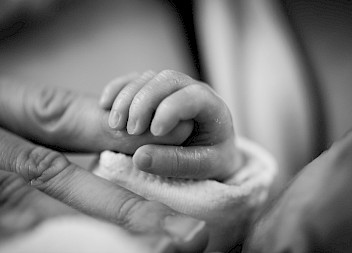The claimant, a 58-year-old man, received £299,000 after delayed diagnosis of compartment syndrome in his left leg resulting in nerve injury and mobility problems. His muscles in his left lower leg wasted significantly and he was left with a foot drop and had to wear a splint. He also developed suffered trying to adjust to his injuries and became depressed.
£299,000 after delayed diagnosis of Compartment Syndrome
In 2008, the Claimant (C) went to hospital for surgery for bladder cancer. After the operation, he experienced pain in his left calf. A nurse made a note of a complaint of pain at 22:30 that day. A nurse also called for a doctor to come and review C but this did not happen.
In the early hours of the next day, at around 3 a.m., C complained that his leg was “feeling very warm and about to explode.” A nurse examined again but didn’t call for medical review. C continued in increasing pain. At about 6 a.m. a young doctor found him in severe left leg pain that morphine was not helping. The doctor thought the issues was one of a nerve type injury.
That day, C was seen six times by various senior members of the urology team and by nursing staff. The diagnosis of a nerve injury was not changed even though C still had severe pain but also neurological and functional issues with his foot.
At 10 a.m. the next day the vascular team reviewed him and a diagnosis of compartment syndrome was finally made. C underwent an emergency surgery (a ‘fasciotomy’) that day. He had to have three more surgeries after that as well.
C’s claim was that the Hospital Trust (‘D’) had fallen below a reasonable standard of care failing as a doctor had failed to respond to the nurse’s initial request to attend and examine C. Also, the next day, severe and worsening leg pain and pressure in his leg was not properly reassessed, incorrect diagnosis of neuropraxia was reached and in failing to diagnose compartment syndrome and urgently operate. It was argued that earlier emergency surgery would have preserved nerve and motor function in C’s leg.
It was admitted by D that a doctor should have attended when asked to do so by the nurse but not that any different diagnosis would then have been reached. It was denied that diagnosing nerve injury initially was negligent and that the outcome would have been the same therefore.
Liability partially admitted, causation admitted to a limited extent. D admitted that the treating
C was left with a wasted looking leg and had to wear a splint because of foot drop which was permanent. He had ongoing pain and discomfort in his lower leg and hypersensitivity in his foot. He was limited in relation to walking any distance. He found it hard to adjust and became depressed and needed therapy.
In relation to work, he couldn’t carry on as a self-employed lorry driver. However, he did manage to get a role as an employee with the company he had previously driven for, though struggled in the role. He couldn’t walk far and was prone to tripping. Many of the tasks he had been able to do previously, such as gardening, DIY and walking his dog, he struggled with.
His compensation was broken down as General Damages: pain, suffering and loss of amenity: £45,000. Past financial losses of £17,500 and future losses (including loss of earnings): £192,500.



